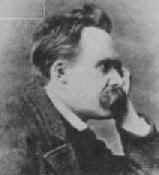

It was Martin Heidegger’s lectures on Nietzsche from the 1930’s and 1940’s, but published only in 1961, that was decisive in developing interest in Nietzsche as a philosopher.

Although important works about him were published in the thirties by the German philosophers Karl Jaspers, Max Scheler, and Karl Löwith, their influence was limited by the rise of Nazism.

Interest in Nietzsche as a philosopher, however, only became widespread after World War II. Freud stated “that he had a more penetrating knowledge of himself than any man who ever lived or was likely to live.” 3 And Freud stopped reading him because he feared Nietzsche had anticipated many of his own ideas. Thomas Mann, Herman Hesse, André Gide, William Butler Yeats, Rainer Maria Rilke, George Bernard Shaw, Eugene O’Neill, August Strindberg, to name but a few, were all influenced by him. Initially, Nietzsche’s influence was primarily literary and artistic. The Weimarer Nietzsche-Bibliographie, published 2000-2002, includes over 20,000 entries in 42 languages. The International Nietzsche Bibliography, published in 1968, listed over 4,500 entries in 27 languages since then more than 3,000 books on Nietzsche have been published. This influence is reflected in the enormous secondary literature about Nietzsche. Stanley Rosen has called him the most influential philosopher in the western world and for Charles Taylor, all contemporary philosophy is neo-Nietzschean.

In 1955, Martin Heidegger wrote, it is “Nietzsche, in whose light and shadow all of us today, with our ‘for him’ or ‘against him’ are thinking and writing…” 2 This is even more evident today. I am no man, I am dynamite.” 1 Nietzsche’s Influenceįriedrich Nietzsche's (1844-1900) influence on the present age is all pervasive. One day my name will be associated with the memory of something tremendous-a crisis without equal on earth, the most profound collision of conscience, a decision that was conjured up against everything that had been believed, demanded, hallowed so far.


 0 kommentar(er)
0 kommentar(er)
